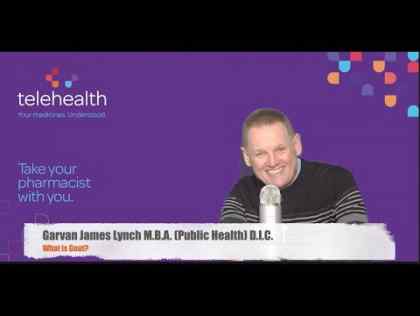Colgout (Colchicine) tablets are used to help prevent gout and to treat sudden severe attacks of gout.
What is it used for?
- Acute gout.
- Short-term prevention of gout.
How does it work?
- Colchicine tablets are used to help prevent gout and to treat sudden severe attacks of gout.
- In gout, crystals of uric acid are deposited in certain joints. White blood cells migrate to the areas of the body where uric acid has been deposited. They attempt to engulf the crystals, and, as a result, lactic acid and pro-inflammatory enzymes are released.
Use with caution in
- Conditions involving the stomach and intestines (gastrointestinal conditions).
- Elderly people.
- Heart disease.
- Kidney disease.
- Liver disease.
Not to be used in
- People with disturbances in the normal numbers of blood cells in their blood (blood dyscrasias).
- Breastfeeding.
- Pregnancy.
This medicine should not be used if you are allergic to one or any of its ingredients. Please inform your doctor or pharmacist if you have previously experienced such an allergy.
If you feel you have experienced an allergic reaction, stop using this medicine and inform your doctor or pharmacist immediately.
Pregnancy and breastfeeding
Certain medicines should not be used during pregnancy or breastfeeding. However, other medicines may be safely used in pregnancy or breastfeeding providing the benefits to the mother outweigh the risks to the unborn baby. Always inform your doctor if you are pregnant or planning a pregnancy, before using any medicine.
- The safety of this medicine for use during pregnancy has not been established. This medicine should not be used in pregnancy. Seek medical advice from your doctor.
- It is not known whether this medicine passes into breast milk. Mothers who need treatment with this medicine should not breastfeed. Seek medical advice from your doctor.
Side effects
Medicines and their possible side effects can affect individual people in different ways. The following are some of the side effects that are known to be associated with this medicine. Just because a side effect is stated here, it does not mean that all people using this medicine will experience that or any side effect.
- Nausea and vomiting.
- Abdominal pain.
- Rash.
- Diarrhoea.
- Bleeding from the stomach.
- Damage to the liver.
- Damage to the kidneys.
- Blood disorders
- Muscle weakness.
- Loss of hair.
- Decreased production of blood cells by the bone marrow (bone marrow suppression).
- Pins and needles sensation in hands and feet (peripheral neuritis).
The side effects listed above may not include all of the side effects reported by the medicine's manufacturer.
For more information about any other possible risks associated with this medicine, please read the information provided with the medicine or consult your doctor or pharmacist.
How can this medicine affect other medicines?
It is important to tell your doctor or pharmacist what medicines you are already taking, including those bought without a prescription and herbal medicines, before you start treatment with this medicine. Similarly, check with your doctor or pharmacist before taking any new medicines while being teated with this one, to make sure that the combination is safe.
Marcolide antibiotics, such as erythromycin and clarithromycin may increase the amount of colchicine in the blood by reducing its breakdown in the liver. This may increase side effects from colchicine.
If colchicine is used in combination with cyclosporin there may be an increased risk of muscle problems.
How do I take Colgout 500mcg (Colchicine)
- Take exactly as prescribed by your doctor. Do not take in larger or smaller amounts or for longer than recommended. Follow the directions on your prescription label.
- Colchicine can be taken with or without food.
- To treat a gout attack, for best results take colchicine at the first sign of the attack. The longer you wait to start taking the medication, the less effective it may be.
- You may need to take a second lower dose of colchicine 1 hour after the first dose if you still have gout pain. Follow your doctor's instructions.
- Your dose will depend on the reason you are taking this medication. Colchicine doses for gout and Mediterranean fever are different.
- If you use this medication over a long period of time, your blood may need to be tested on a regular basis. Do not miss any scheduled appointments.
- Keep using colchicine as directed, even if you feel well. Tell your doctor if the medicine seems to stop working as well in preventing gout attacks. Do not stop using colchicine without first talking to your doctor.
- Store at room temperature away from moisture, heat, and light. Keep the bottle tightly closed when not in use.
References:
http://www.emedicinehealth.com/drug-colchicine/page2_em.htm#howtake
http://www.netdoctor.co.uk/medicines/aches-and-pains/a6445/colchicine/
http://www.healthline.com/health/colchicine-oral-tablet
https://www.drugs.com/cdi/colchicine-tablets.html
https://en.wikipedia.org/wiki/Colchicine
http://www.rxlist.com/colchicine-drug.htm


